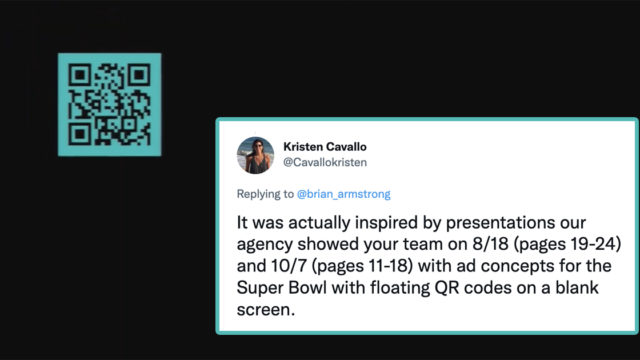Don't miss ADWEEK House at Cannes, June 16-19. Join us as we celebrate our 45th anniversary and explore the industry's now and next. RSVP.
The PR person for a beloved brand once pulled me aside and scolded me for a tweet I’d posted on an agency account about our work for them. The issue was the word “created.”
“You didn’t create this,” she said, pointing at the house-sized structure we’d conceived of, designed and built for them. “You need to understand you’re not the marketing geniuses around here. We are.”
Agencies are inclined to speak through their work—it’s the language they use best. That’s why they scramble for exciting brands, brands people talk about and brands that will let them do great things.
But what if you’re not allowed to say anything about that work—or even to say that you’re working for those brands at all?
What’s mine is … mine
Every agency has at least one client that won’t let them do PR. Usually, it seems to be the one where the agency is doing the best work, where the mention of that client would make the biggest difference.
It’s not that all clients have a marketing genius’ potent mix of ego and insecurity. There are lots of reasons brands keep things mum.
For example, there are tech companies that view marketing as intellectual property. Some brands are reluctant to call attention to their marketing departments or their partners.
Some are so big that the agency barely registers. And some just don’t like to be bothered.
A detrimental domino effect
“You still get paid,” brands might say. True enough. But most agencies can’t market themselves the way the brands do. The work, and the buzz they get for it, is their product—it’s the currency agencies use to grow.
If they can’t share it, they can’t attract new customers. Under quarantine, great work is harder to come by, so it’s even more painful if it can’t be shared.
“You still get paid,” the brands might say—again. Brands think winning new clients is the agency’s problem, not theirs.
But here’s the thing: Agency PR is only half-focused on new business. The other half is attracting talent—the same talent that fuels the content and the strategy that makes great marketing possible.
When brands don’t allow PR, they cut off that pipeline. They siphon talent to other accounts who do allow PR. That hurts not just the agency but the brands, too.
In this environment, agencies have rightly started taking stands in the areas where brands squeeze too hard. They’re pushing back on spec work and pitches. They’re reporting predatory practices in reviews and contracts.
So why wouldn’t they push back when their clients won’t let them talk about the one thing that makes them agencies?
Taking a stand
If you’re an agency, you have a few ways to advocate for yourself on the PR front.
Ask early. The most crushing thing that can happen to a team is when they find out they’ll never be able to sign their names to the project they’ve devoted the last six months to. That realization often comes weeks or even days before the project launches, when it’s too late to change anything.
Ask early what your clients’ PR policy is. Set expectations with your client that you’ll want to do PR. Build it into your launch.
Negotiate. You negotiate everything else in your client relationship, from staffing to compensation, so why not this?
Build a publicity clause into your MSA. Recognize that publicity has monetary value and be willing to stand down in other areas to win that right. If blanket approval isn’t possible, push for PR on the one or two projects that matter most.
Make friends. The agency client is almost never the PR person. Frequently, the marketing and PR teams are part of different organizations, with their own objectives and rivalries, so any request for PR that comes through the marketing team might be met with suspicion.
Get to know the PR teams personally and help them understand you’re acting in their interest as well. Give them gifts of news opportunities that benefit the brand, not the agency, as a way to underscore that point.
Know when to break the rules. You don’t get many moments to create work that defines your agency.
If the work is important enough to your business, it may be worth the risks and repercussions of getting it in front of the press. You’ll have to decide when that moment arrives.
As for brands? Remember there’s value in letting agencies talk about your company.
The audience of advertising and business press may be small compared to the consumer press you’re targeting, but it’s influential and has a lot of purchasing power. Talking about your work and the way you partner with agencies will make you look like savvy marketers and decent people.
Let’s be honest: You didn’t get to that campaign without partners. Someone else helped you create it. Let them talk about it.










